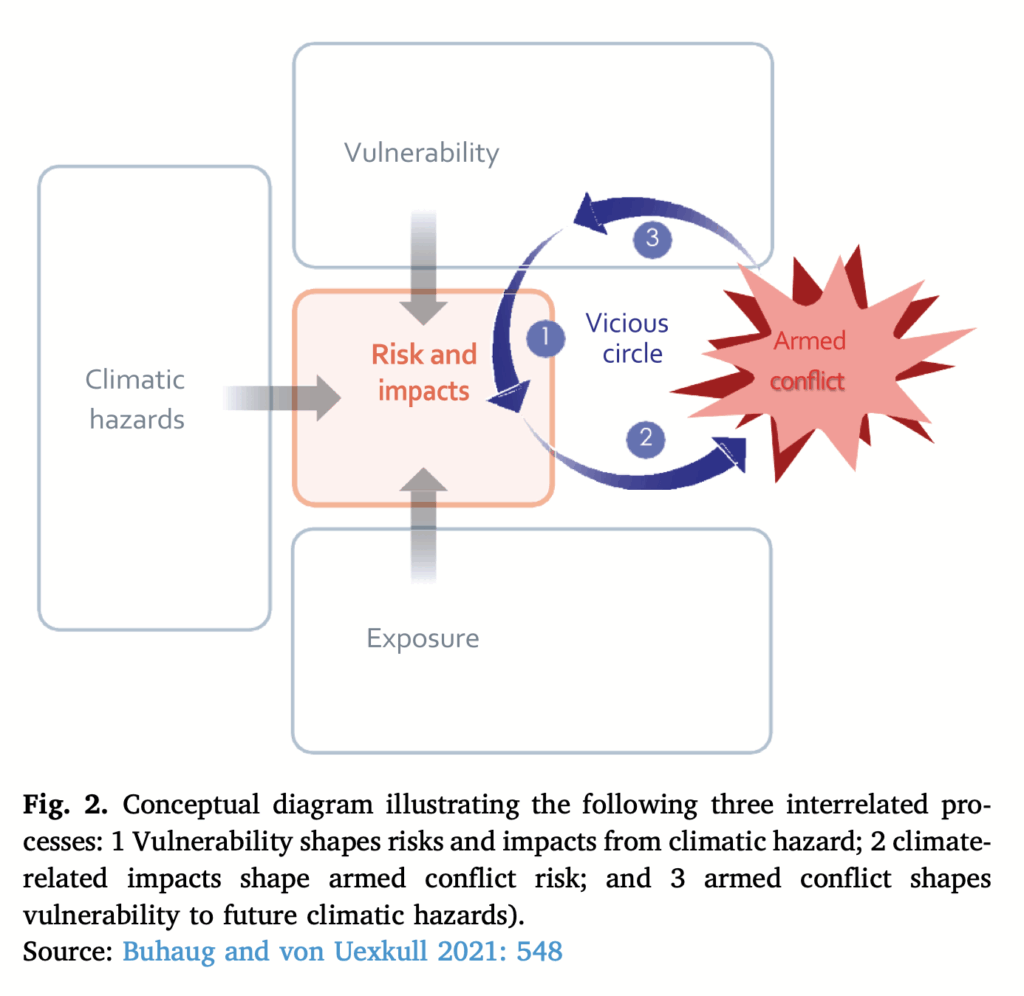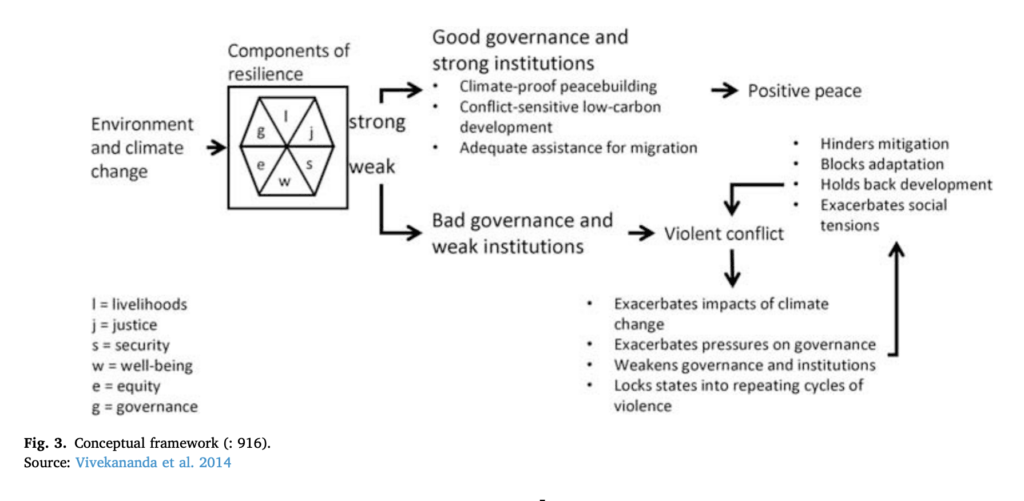Foregrounding politics: From the climate-security nexus to peace in the Anthropocene
from Geoforum: Critical Climate Security
Guest Editors:
- Delf Rothe
- Christine Hentschel
- Ursula Schroeder
13 August 2024
What is security in an age of catastrophic climate change? What conceptual, and critical, tools do we need to come to terms with the unequal geographies of climate insecurity in their temporal, spatial, political, and affective dimensions? This interdisciplinary special issue provides new approaches, perspectives, and methods to critically study climate security through the lenses of Human Geography, Security Studies, Critical Race Studies, Sociology, Anthropology, and International Relations.
GUZZINI, Stefano, Foregrounding politics : from the climate-security nexus to peace in the Anthropocene, Geoforum, 2025, Vol. 165, Art. 104380, OnlineOnly – https://hdl.handle.net/1814/93096
A B S T R A C T
Against the backdrop of reframing the climate change-security nexus as peace politics in the Anthropocene, the article proposes to foreground political processes in the analysis, methodologically, conceptually and normatively.

Methodologically, it shows how existing approaches which start from either the one or the other end of the nexus tend to crowd out the central place of political processes. Starting with climate in the elaboration of the causal path, and despite multiple attempts to overcome all-to-easy determinisms, the analysis still tends to externalize nature in the explanation. Starting from violent conflict for the analysis of environmental security, it similarly sees war as something external to political processes, which a conceptual switch to think security from peace would avoid. These shortcomings lead to a proposed change in the research design. While the classical setup is a typical outside-in design, where the domestic institutions provide the intervening variables to explain diverse outcomes for similar climate facts, the more socio-political design is inside-out in that it starts from the perceptions and understandings of the local actors, as well as the socio-political processes, such as the social conventions and repertoires of conflict resolution mechanisms, that may lead to resilience, conflict or peace under certain climatic conditions, also affecting the latter.

Finally, the article engages with the normative problem of political agency under potentially radical uncertainty. It discusses an ethics of prudence as a possible solution, showing its attraction and limits as a relatively empty signifier that relies on moderation and lessons of the past.
